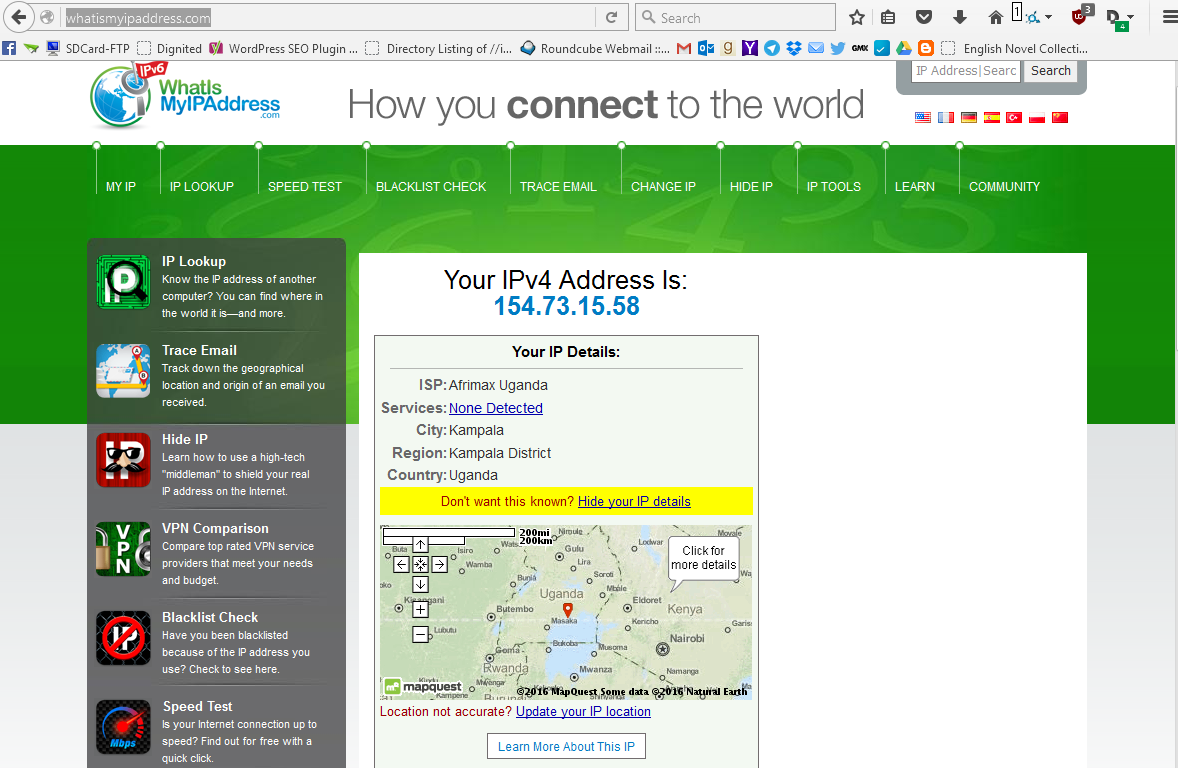An IP address (abbreviation of Internet Protocol address) is a string of numbers used to identify devices on a local network as well as on the Internet. A simple google search for “What is My IP Address” brings up the unique IP identifier for whichever device one is using to access the internet. The Website WhatisMyIPAddress brings up alarmingly accurate information about one’s current location, IP address along with their internet service provider.
What use is an IP Address? How an IP address works is like a geographical location marker that search engines like Bing, Yahoo and Google use to tailor the results to whatever you look up online. Google.com quietly suggests using google.co.ug instead for those in Uganda so that the results one receives are of locally relevant content. Surfing using local languages Luganda, Swahili, Kinyarwanda and Luo are also supported. YouTube also pushes popular local videos and news channels one one might be interested in based on IP address. The secret behind the power of the IP address is that websites such as Google and Facebook use these location markers to push sponsored ads targeting particular regions. This is how these companies are able to monetise these ‘free’ services we enjoy like a problem. The Things we do Online Being the novices we are, we often tromp around the internet mindlessly in the process leaving footprints for anybody smart enough to trace where we’ve been. We google those adorable cat videos on YouTube everybody keeps oohing about. We keep abreast with the Ugandan entertainment scene on BigEye. We google those happy things we’ve been warned not to eat. We do it all. How does Google get access to all our search behaviour? Scroll up and read about it again. And now you know.
You can look up any number of free online Proxy Servers that bypass surfing restrictions by shielding one’s IP address. With this one can access content not available in certain regions or intentionally blocked and at the same time hide that IP address that would otherwise lead back to you. We have talked about Virtual Private Networks before so not to toot that horn once more, all we can say is that much as VPNs cost some legal tender, they are an option one might look into if they really wanted to. Alternatively, one can use the Tor browser which essentially makes one a ghost online. But like we said in an earlier article, Tor drastically reduces surfing speeds and is somewhat of an overkill..
Our advice would be to surf sensibly. There is always somebody out there watching you. While not always with bad intentions,knowing that it’s done should serve as a cautionary tale. What we forgot to mention earlier is that an IP address serves it purposes some of which are good. For one, Gmail uses your IP for your own protection. Your active and previous sessions are recorded and you are promptly notified of any attempt to login from an unknown IP address. It could be websites looking to sell ads to stay afloat, it could be search engines or it could be the government keeping tabs on you. IP addresses are often forgotten but very powerful digital footprints not to be taken lightly.



